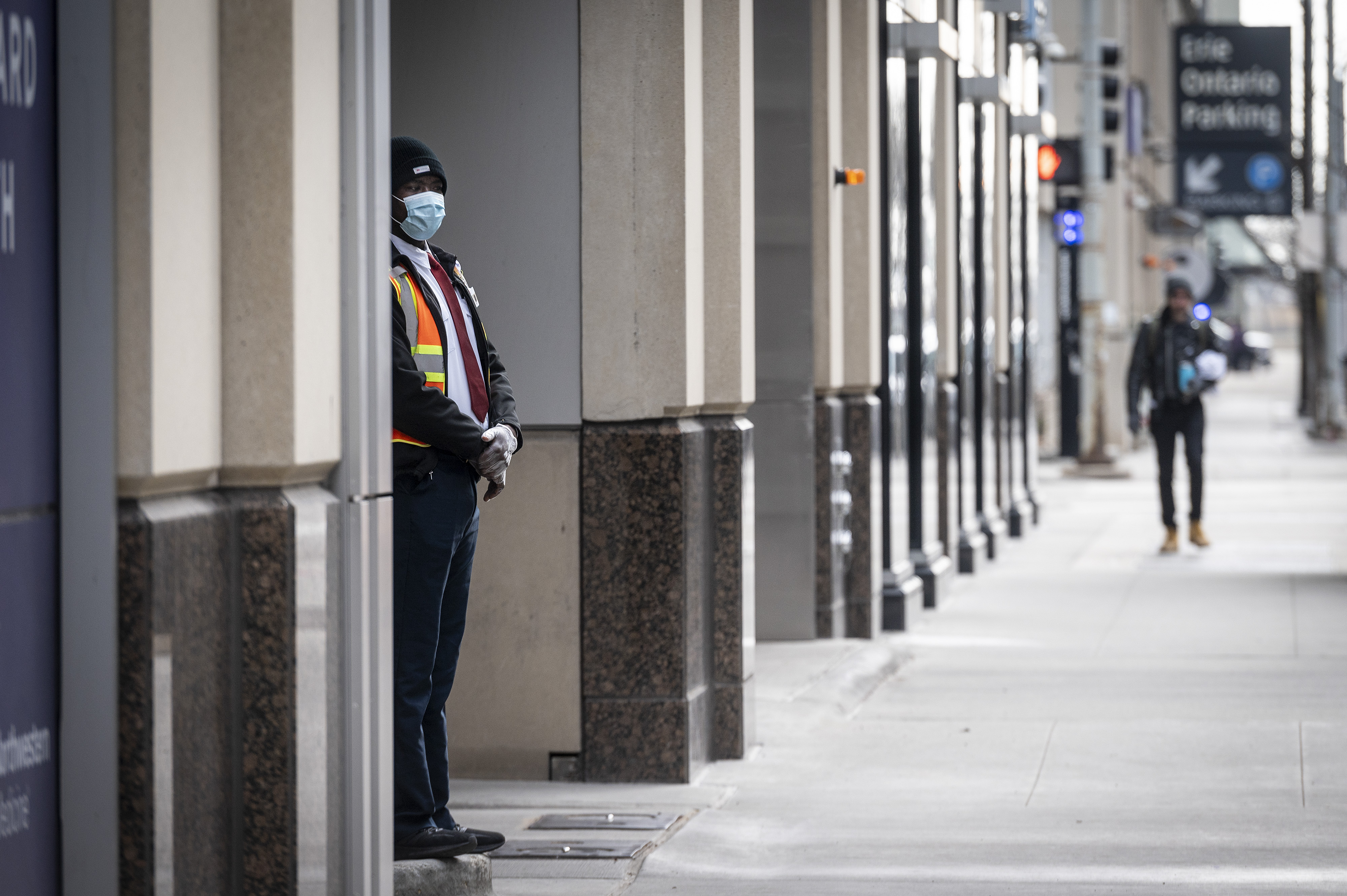With Illinois coronavirus cases continuing to rise and the state seeing some of its highest daily death dolls of the pandemic so far, some questioned if the statewide stay-at-home order could be hindering immunity for Illinois residents.
Some have suggested that if a larger part of the population can develop full or partial immunity to coronavirus - either from surviving it or a potential vaccination - they will in turn protect the smaller portion of people who remain at risk. It's a theory known as "herd immunity."
But that idea wouldn't work in Illinois' coronavirus crisis, according to Gov. J.B. Pritzker.
"Folks, let me just point out that the Great Britains went by this theory that perhaps if we just let everybody get it, then everybody will get hurt, we'll have herd immunity faster, and everybody will be okay," Pritzker said during his daily press briefing Tuesday. "Well guess what? If you let everybody have it all at once, which is what happens when you just let it go, you overwhelm your healthcare system, and more people die - a lot of people can die. And so the suggestion that we should just let it happen so that the herd immunity occurs faster is an invitation for us to just let people die. And I won't do that. I will not do that."
Currently, there is no vaccine available for the virus, though tests are underway. Experts have also noted that it remains unclear if those who contract the virus become immune to it after recovery, and if so how long that immunity lasts.
Illinois' total number of confirmed coronavirus cases rose above 13,500 Tuesday as the state saw its biggest single-day death toll since the pandemic began.
In addition to 1,287 new cases, 73 deaths were reported in the last 24 hours, bringing the total number of state fatalities to 380.
Cases have been reported in 77 of Illinois' 102 counties.
Pritzker said the state needs time to find a solution to the crisis.
"By bending the curve, we are buying them all time," Pritzker said. "Time to find our solutions. Time to save lives. Valuable time now that allows us to move beyond this crisis more quickly."
At the same time, officials worry that Tuesday's warm weather could lead to an increase in cases as residents look to head outside.
Temperatures in the Chicago area Tuesday rose to levels not seen in 189 days, according to NBC 5 Storm Team meteorologists. But with those warmer temperatures came concerns and warnings from officials.
"Staying home is the most likely reason you can avoid ending up on a ventilator," Pritzker said. "I know that especially on a warm day like today, that’s particularly hard to hear. The sun shines, and it feels a little bit more like this should be over, that you should be hanging out with your friends and loved ones by the lake, at the fairgrounds, over dinner. Believe me: I, too, would do just about anything for an immediate solution to this."
Chicago Mayor Lori Lightfoot has warned the city could see upwards of 40,000 hospitalizations and U.S. health experts worry Cook County could become one of the nation's next hotspots.
"Just because you hit a peak doesn't mean you're going to fall precipitously to zero," Pritzker said last week. "Once we get to that peak we're all going to be praying that we come off that peak quickly, but we might not...we might be flattened at that peak."
Already, the state is bringing back online once-shuttered hospitals and has transformed Chicago's McCormick Place convention center into an alternate care facility for patients with mild symptoms.
Across Illinois and the country, Americans are being encouraged to wear masks or face coverings if they have to head outside.
"in normal battle you show up to the fight but for this battle the winning strategy is to stay at home," Dr. Ngozi Ezike, director of the Illinois Department of Public Health said Tuesday.



